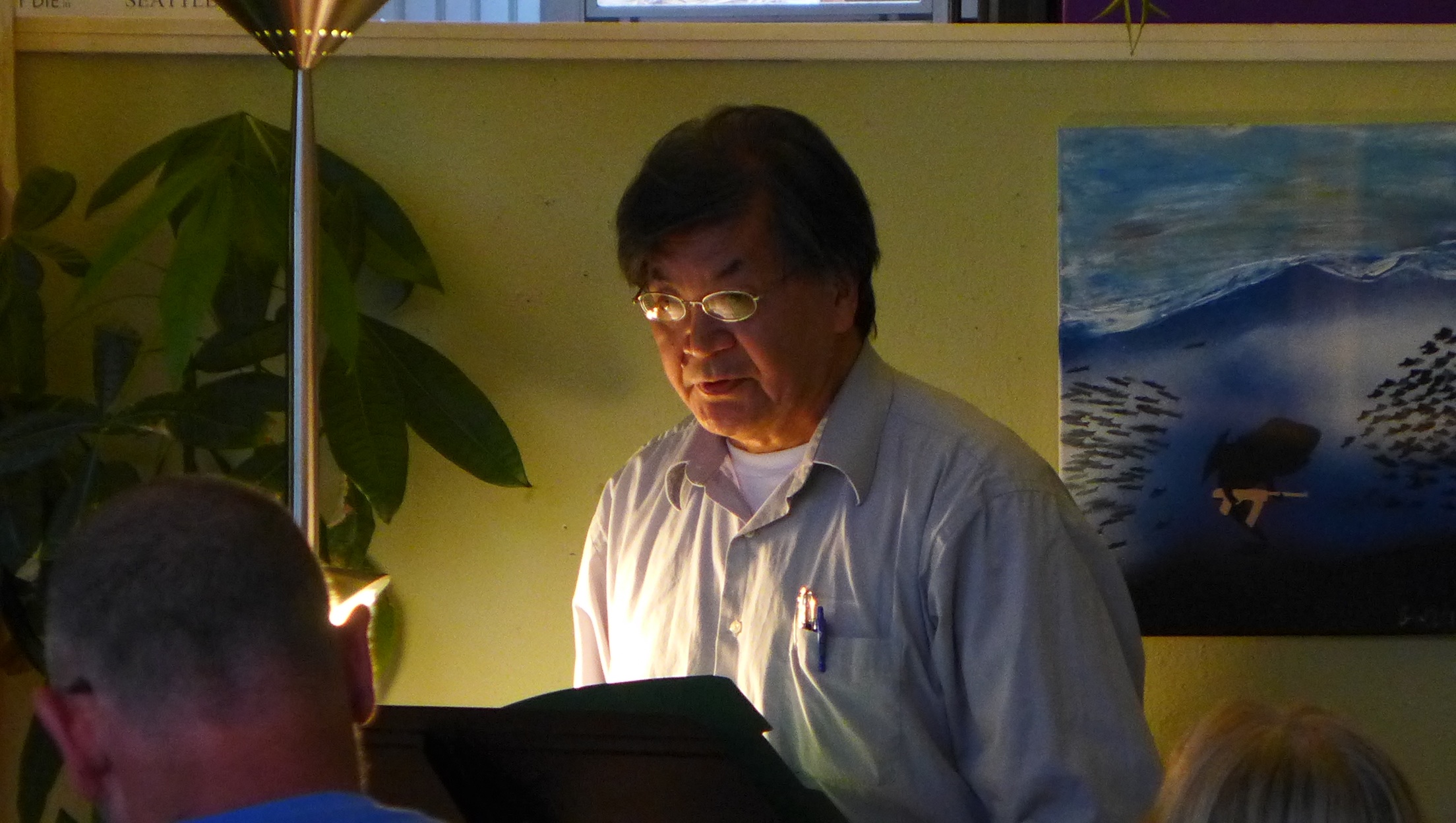P&W-supported poet Koon Woon, October’s Writer in Residence, was born in a timeless village in China in 1949. In 1960 he immigrated to Washington State, first to the logging town of Aberdeen, then to Seattle, where he now resides. He turned to poetry while he was a mathematics and philosophy student coping with mental illness. Later he attended the workshops of Nelson Bentley at the University of Washington. At the age of forty-eight, Koon’s first book, The Truth in Rented Rooms, was published by Kaya Press.  It might sound like a stretch, but poetry saved my life—along with the care of psychotherapists, the kindness of my dear friend Betty Irene Priebe, and a continuous parade of literary friends.
It might sound like a stretch, but poetry saved my life—along with the care of psychotherapists, the kindness of my dear friend Betty Irene Priebe, and a continuous parade of literary friends.
Even though I was appointed literary chairman in high school, I could not attend the meetings after school because I had to help out in my family’s Chinese-American restaurant. I tried to study mathematics and philosophy in college, but mental illness was sneaking up on me. I had a full-blown psychotic episode in the streets of San Francisco at age twenty-seven, and was involuntarily hospitalized. I was shouting alarming verses on Stockton and Vallejo Streets at the edge of Chinatown, just a few blocks from the City Lights Bookstore.
I had no idea then that City Lights founder Lawrence Ferlinghetti would one day blurb my first book, The Truth in Rented Rooms, and sell it in his bookstore. (P&W has supported both Ferlinghetti and the store over the years.)
I wrote because I could assuage my mental illness by clarifying to myself my feelings and perceptions of reality. My first publication was “Goldfish,” which appeared in a literary tabloid called Bellowing Ark, started by a fellow student of poet Nelson Bentley at the University of Washington. The poem is about an animal perceived as a regal creature admired by emperors in daylight; but at night, the goldfish turns into a carp, a sharp, silver dagger conspiring to take their lives.
Many academic poets have at least a full-length book out with a prize (and also a price) attached, and a teaching position. But my relationship to poetry always felt more personal than professional—more intense, more weighty. For me, poetry was an attempt to regain my sanity. (This struggle was later collected in a chapbook, The Burden of Sanity, first published by Joe Musso’s Hellp Press.)
Now, at age sixty-four, my second book, Water Chasing Water, is out, thanks to editor Sunyoung Lee and Kaya Press, the world’s foremost English-language publisher of literature of the Asian diaspora. My books have found their way into universities.
I never set out to become a published poet. I entered the literary world through the back door, writing to channel my emotions instead of acting out in the streets. One can almost say I had a utilitarian reason to write poetry. But I am not an armchair poet. I became active in the literary community--active enough to form a literary press and to edit and publish a poetry magazine for twenty years. I also judge contests and sponsor poetry readings and workshops, several of which have been supported by Poets & Writers, Inc.
This month, I will blog about the poetry scene in Seattle and some of the poets and facilitators of readings and workshops. Increasingly, Seattle is becoming a thriving literary community that deserves the nation’s attention.
Photo: Koon Woon reads with Beacon Bards at the Station coffee shop in Seattle. Credit: Greg Bem.
Support for Readings/Workshops events in Seattle is provided by an endowment established with generous contributions from the Poets & Writers Board of Directors and others. Additional support comes from the Friends of Poets & Writers.





